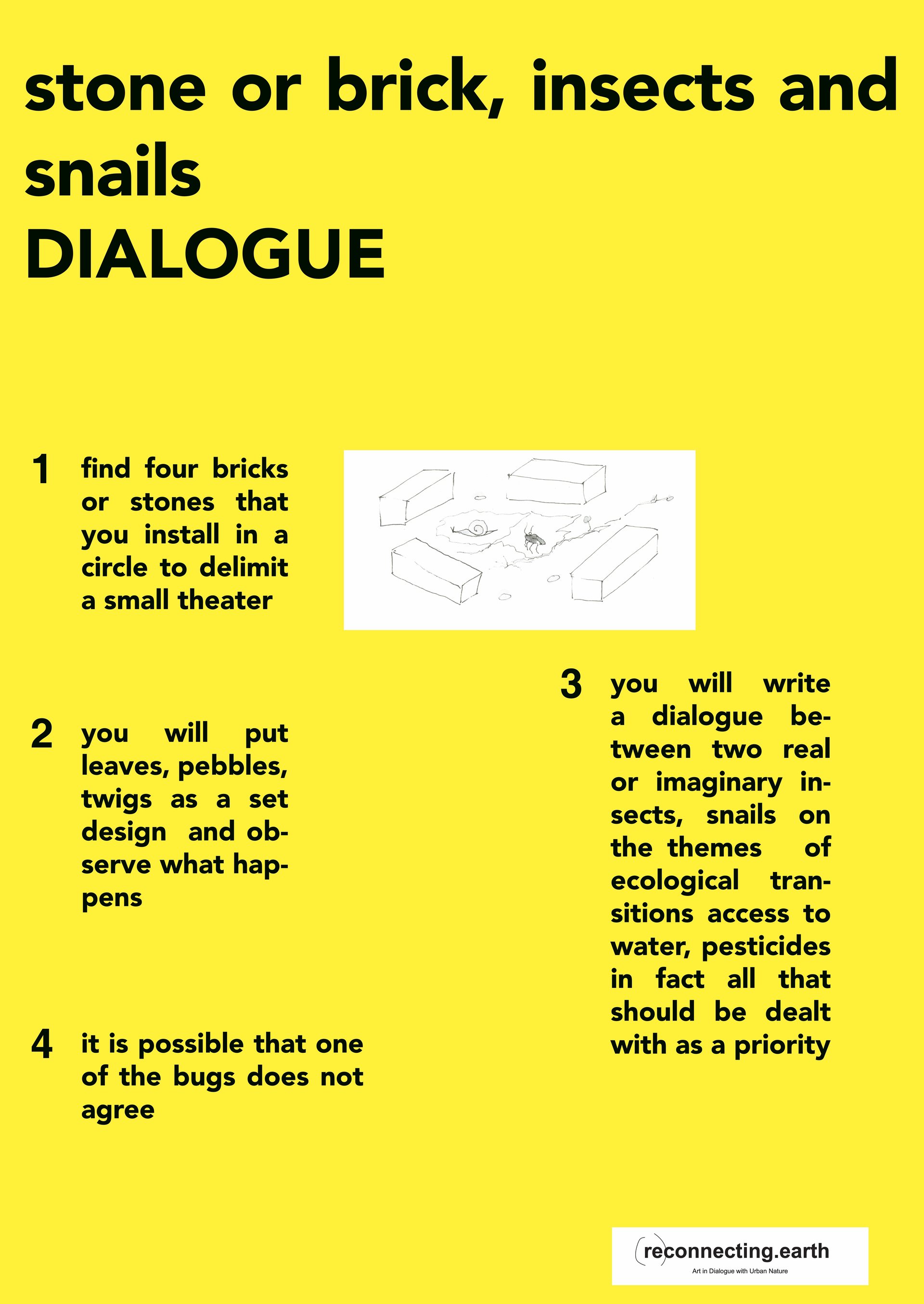Valérie Favre
Valérie Favre (1959) lives and works between Berlin and Paris. An adept of free figuration, the artist explores new narrative and conceptual perspectives in her work, which deals in particular with the relationship between fiction and reality, play and life, domination and powerlessness, organizing the space of her images as in large-scale theatrical tableaux. For her instruction, she drew on her youthful memories of imagining encounters and dialogues between different species and thus offers an activity that marries humor with the seriousness of the environmental emergency that threatens these same insects as well as humanity.
Fun Fact
The incredible importance of insects in ecosystems is often underestimated by humans. These small creatures play crucial roles in maintaining ecological balance, and their disappearance would have disastrous consequences for the planet. Insects, especially bees, are responsible for pollinating many flowering plants, including those that produce the majority of our fruits and vegetables. Around 75% of the world's food crops depend in part on insect pollination. Without these pollinators, global food production would be seriously threatened, leading to food shortages and price increases.
Call to Action
Three Actions to support insects:
1) Plant Native Flowers: Choose native plants that produce nectar and pollen to attract and feed pollinators like bees, butterflies, and bumblebees. Wildflowers are especially beneficial.
2) Create a Bug Hotel: Build or purchase a bug hotel to provide safe shelter for beneficial insects. These structures can attract pollinators, natural predators of pests, and decomposer insects.
3) Reduce Pesticide Use: Limit or eliminate the use of pesticides in your garden. Opt for organic pest control methods or natural solutions to manage pests.
Riddle
What essential role do insects play in ecosystems, and why would their disappearance be of particular concern to global food production?
A) They are natural predators of large mammals
B) They recycle nutrients by breaking down organic matter
C) They pollinate many flowering plants essential to food production
D) They are primarily responsible for creating new natural habitats
Instruction
